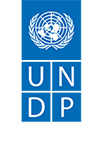The Response > National BWM requirements
As shipping is probably the most international industry, the only effective way to address shipping related issues is through a standardised international system. This has been one of the hallmarks of the success of IMO in its more than 50 year history. The avoidance of unilateral responses by individual states is critical to the success of any regulatory regime that applies to shipping.
As an IMO activity, GloBallast is promoting the adoption of the standardised IMO legal regime throughout all of its activities. One of these activities has been a Legislative Review.
Despite the significant efforts being expended by IMO member States to develop an international legal instrument, many countries and even sub-national jurisdictions have unilaterally developed or are developing national or local legislation. These include Australia, Canada, Chile, Israel, New Zealand, the USA, various individual States within the USA and various individual ports around the world, such as Buenos Aires in Argentina, Scapa Flow in Scotland and Vancouver in Canada.
Some unilateral responses impose new and different requirements on shipping. Such developments are of major concern to the shipping industry, which must operate across many jurisdictions and which may be impacted severely when the rules change from port to port. In order to keep its members and others informed of legislative developments, the International Association of Independent Tanker Owners (INTERTANKO) has developed national legislation profiles, posted on its web site.
It is worth mentioning here the US Coast Guard (USCG) and US Environmental Protection Agency (EPA) ballast water (BW) regulations which are the subject of numerous presentations during conferences and in all new guides and manuals on BWM.
For more information on the U.S. ballast water discharge standard and the Coast Guard requirements for type approval of ballast water management systems, the compliance options, the approved Alternate Management Systems, examples of letters granting extensions to the compliance date of the ballast water management implementation you can consult the USCG webpage and the EPA webpage.
National legislative frameworks differ significantly between countries, including constitutional structure, system of national laws, policies and strategies as well as bylaws. Thus comprehensive lists of laws, policies and strategies relevant to IAS management must be compiled country by country.
Several countries have already developed strategies or legislation specific to IAS. This includes e.g. Norway’s Strategy on Invasive Alien Species which was produced by ten governmental agencies. However, in many countries IAS is still covered only under other legislation and policies, such as those related to health, environment management, transport and shipping.



